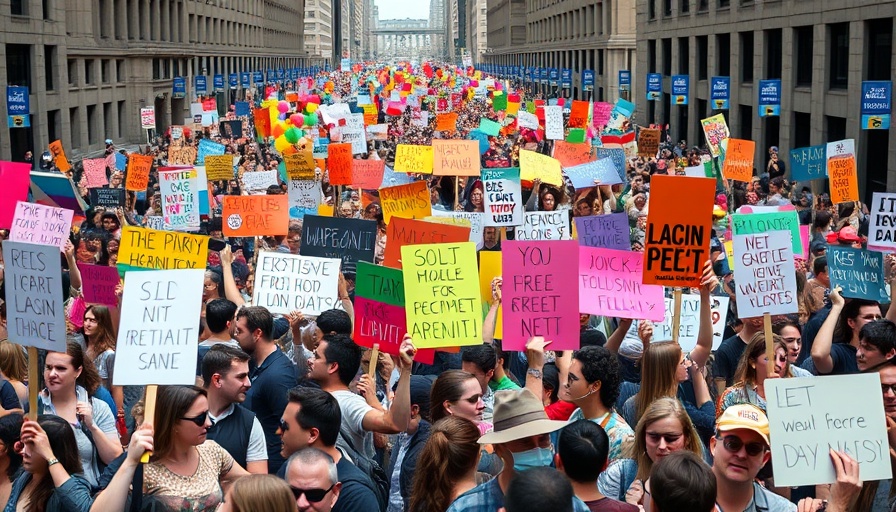
Yoon Suk Yeol's Ouster: A Turning Point for South Korea?
On April 3, 2025, South Korea’s Constitutional Court made a pivotal ruling, removing President Yoon Suk Yeol from office following a tumultuous period marked by political unrest and public protests. The ruling comes amidst widespread controversy surrounding Yoon's controversial declaration of martial law, an act seen by many as a gross overreach of executive power.
The Martial Law Decision and Its Fallout
Yoon's decision to declare martial law was aimed at quelling ongoing protests against his administration, but it instead sparked outrage across the nation. Many view this as a miscalculation that not only undermined public trust but also galvanized a movement demanding democratic accountability. In the days leading up to the court's ruling, thousands rallied outside the Constitutional Court in Seoul, demonstrating their dedication to restoring democratic norms.
Public Response: A Nation Divided
The reaction to Yoon's impeachment has highlighted the deep divisions within South Korean society. While many citizens expressed relief and hope for a return to democratic governance, others protested in support of Yoon, asserting that his removal was politically motivated. This polarization underscores the broader implications for South Korea's political landscape and raises questions about the future of governance in the region.
Historical Context: Echoes of the Past
South Korea has a complex history, shaped by military dictatorships and democratic movements. Yoon's martial law decision echoes darker periods of the nation’s history when leaders sought to suppress dissent through authoritarian measures. Understanding this context is vital to grasp the significance of the court's ruling and its potential impact on future leadership in South Korea.
Future Implications: What Lies Ahead?
The removal of Yoon Suk Yeol invites speculation on the country's political future. Will this legal judgment foster a more stable political environment, or will it exacerbate tensions further? Analysts suggest that this decision may prompt a reassessment of how power is wielded in South Korea, particularly regarding executive authority and public oversight.
Moving Forward: Lessons on Governance and Accountability
This political upheaval serves as a critical lesson about the importance of checks and balances within governance. It raises essential questions about how leaders are held accountable for their decisions and the balance between maintaining public order and ensuring democratic freedoms. For local citizens and future political leaders, this moment underscores the necessity of transparency and responsiveness in leadership.
Engaging the Community: A Call to Action
As residents of Florida engage with international news, it’s essential to consider how global events impact local communities. Yoon's impeachment is not just a story of South Korea; it resonates with broader themes of democracy and governance important to everyone. Residents are encouraged to participate in local discussions about civic engagement and democracy. Understanding and advocating for one's rights is crucial in these rapidly changing times.
The events in South Korea reveal the fragility of democracy and the importance of public engagement. We invite you to explore the depth of this situation and participate in your community's dialogues about governance. Stay informed, share your perspectives, and remain active in fostering democracy right here in Central Florida!
 Add Row
Add Row  Add
Add 






Write A Comment